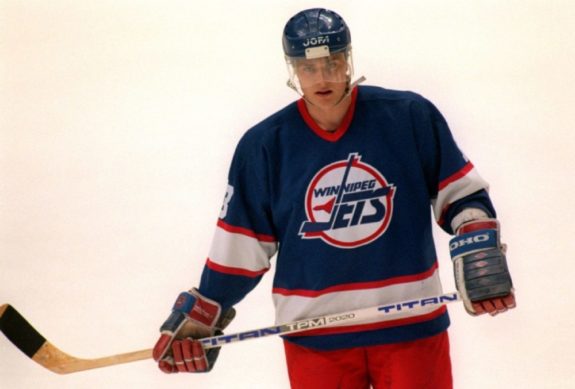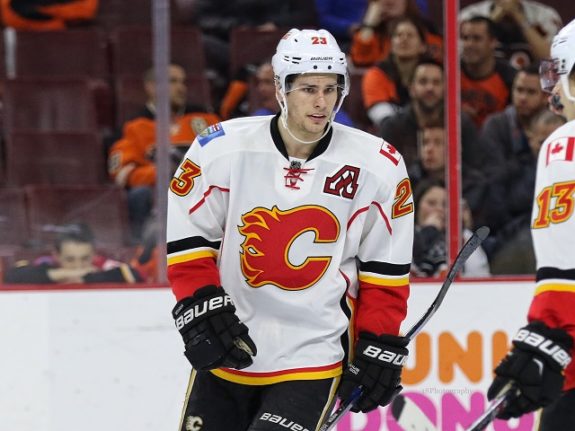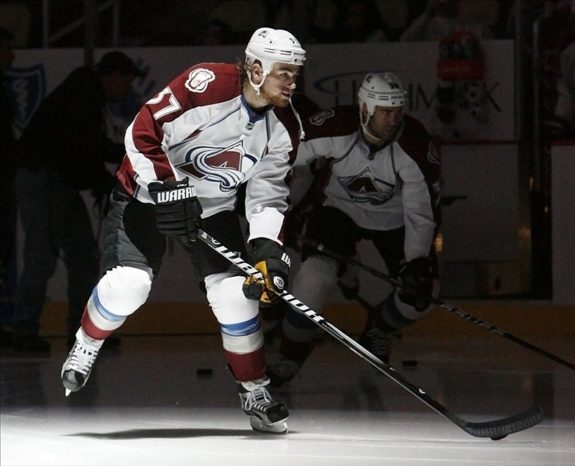Offer sheets are rare in the NHL. Given the uncertainty, stigma, and compensatory draft picks involved, risk-averse general managers seldom use this avenue to acquire players. The Calgary Flames have a short yet high-profile history when it comes to extending offer sheets. In 1992, they almost landed a generational talent when they targeted The Finnish Flash, nearly stealing him from the Winnipeg Jets. Over 20 years later, in 2013, the Flames did it again, this time in infamous fashion as the Ryan O’Reilly saga nearly ended in disaster.
Calgary hasn’t dared to take this avenue recently, despite many fascinating and eligible names on the market. Conversely, the organization may become a target next offseason when notable restricted free agents Matthew Tkachuk and Andrew Mangiapane need new contracts. Here’s a look at Calgary’s history with offer sheets and their possible future use, both for and against.
1992 – Teemu Selanne Was Almost a Flame
The Flames were only a few seasons removed from a Stanely Cup victory, and most of the core team remained intact when management endeavoured to lure future superstar Teemu Selanne from the Jets. Coming off a monumentally disappointing 1991-92 season, in which they missed the playoffs, Calgary was looking to bounce back in a big way.

Led by general manager Doug Risebrough, they sought to leverage the Jets’ financial conundrum by tendering a $2.7 million offer sheet that would lock Selanne up for three years, though he was arriving from Europe and had yet to play his first NHL game. The gauntlet was thrown. It was a rich contract for the time, but Winnipeg quickly matched.
“The Jets matched the offer. The offer sheet had come in at about $1.5 million higher than what the Jets had offered, so there was a lot of angst in Winnipeg about, was any player worth this kind of money.”
– Selanne’s agent Don Baizley
Management surely believed that adding the highly-touted Selanne to a roster that included Theo Fleury, Joe Nieuwendyk, Gary Roberts, Al MacInnis, and Gary Suter would propel the Flames up the Smythe Division standings. It was not to be. Selanne sniped a league-record 76 goals in his rookie season in Winnipeg on his way to becoming one of the most prolific goal scorers of all time. The Flames could have had a dazzling superstar sporting the number 13 long before Johnny Gaudreau arrived.
2013 – The Ryan O’Reilly Debacle
It is hard to forget Jay Feaster’s attempt to pry a then 22-year-old O’Reilly from the Colorado Avalanche due to the catastrophic, thankfully unrealized, ramifications.
O’Reilly was steadfastly holding out in contract negotiations with the Avalanche when the Flames swooped in and signed him to a two-year, $10 million offer sheet in Feb. 2013. “We decided to go ahead and be bold and daring today,” Feaster said at the time.
You may also like:
- Calgary Flames’ 2024-25 Bounce Back Candidates
- Flames Will Be Elite Team When New Arena is Built
- NHL Rumors: Blue Jackets, Oilers, Flames, Senators
- Top Contenders for 2025 Calder Trophy
- Flames Could Speed up Their Rebuild With a Rasmus Andersson Trade
It was bold, but the situation nearly turned disastrous. Per Article 13 of the collective bargaining agreement, O’Reilly would have been subject to waivers. As such, the Flames not only would have had to send their 2013 first and third-round picks to Colorado as compensation, but they would have lost O’Reilly altogether. The blunder could have cost the Flames the chance to select future sniper Sean Monahan.

While Feaster later stated the Flames were aware of the provision and the team’s understanding was “different than the NHL’s current interpretation,” the risk was undeniable. The Avalanche, luckily, matched the offer sheet and retained O’Reilly’s services.

This was a major blunder by Feaster and his management team. However, the initial strategy of aggressively targeting a player of O’Reilly’s ilk was valid. Also, Avalanche general manager Greg Sherman showed no sign that he or his staff were aware of the provision that would have required the Flames to place him on waivers. In fact, O’Reilly’s agent claimed he was unaware of the situation as well. Perhaps Feaster deserves a slight reprieve since this odd and murky situation extended beyond his miscalculation.
